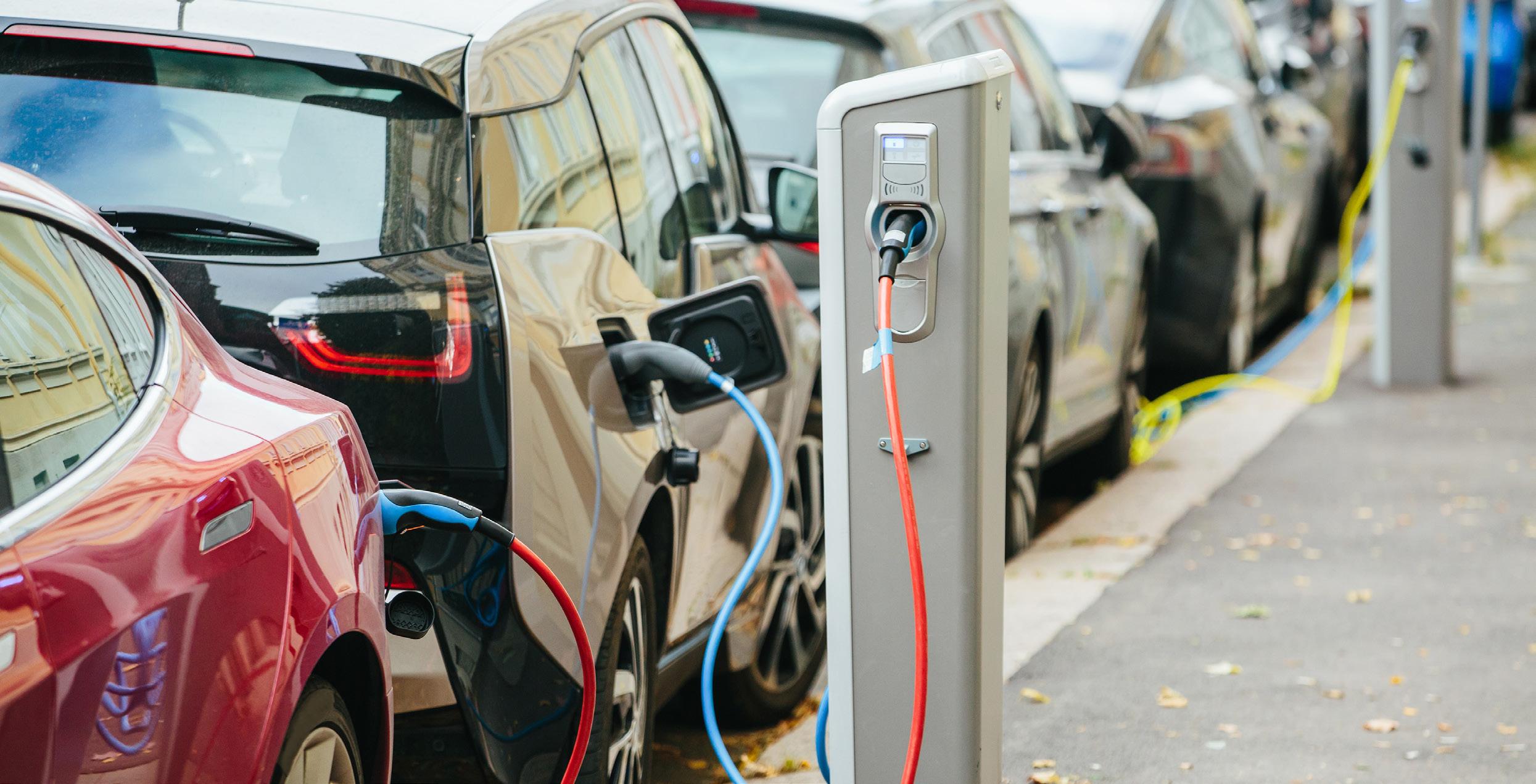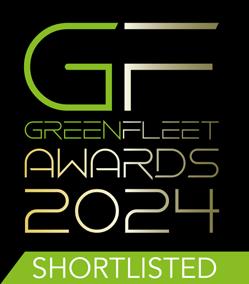Standing up for the ZEV Mandate
Members of Climate Group’s EV100 network are mounting a spirited defence of the ZEV Mandate in the face of intense lobbying efforts. As the deadline for the government’s fast-track consultation approaches, Climate Group recounts the story so far
The ZEV Mandate requires UK carmakers to sell a greater number of electric vehicles every year – until no more new petrol and diesel cars can be sold by 2035 at the latest. It is a bold, highly effective tool.
Labour has confirmed its commitment to the legislation and pledged to re-instate the original 2030 cut-off date – after it was moved to 2035 by then-PM Rishi Sunak.
But the Mandate has come under fierce attack again – from those it aims to push forward in their transition.
At the end of last year, a small number of carmakers launched a concerted, lastminute lobbying effort against the Mandate. It was blamed for a wide range of related and unrelated problems – even though the industry was firmly on track of reaching the 2024 targets and every indication is that global EV sales are only going to go one way: up.
Things came to a head when carmaker Nissan complained to the Financial Times that EV targets were pushing the car industry to “crisis point”.
As The Times started speculating about a possible relaxation of the rules, members of EV100 – a network of companies committed to electrifying their fleets, led by the non-profit Climate Group – stood ready to tell the other side of the story.
In a Guardian article, businesses including EV100 members BT Openreach, SSE and OVO, made it clear that they consider the tool vital to creating the UK’s zero-emission transport future – and, in fact, depend on the legislation to reach their own fleet electrification targets. Clive Selley, chief executive of Openreach, said the government needed to “cut through the noise and listen to businesses who are already investing large sums in the switch” when considering the future of the Mandate.
“Don’t waver on the ZEV Mandate,” he said. Companies across the UK have embarked on ambitious EV transitions knowing that their leadership sits within a wider framework of support. The ZEV Mandate is a key part of this: it guarantees supply and sets a clear pathway for all actors, making confident investments in new technology possible. Any change to it unsettles the entire system.
“There is absolutely no justification for tinkering with the world-leading tool that
As The Times started speculating about a possible relaxation of the rules, members of Climate Group’s EV100 – a network of companies committed to electrifying their fleets –stood ready to tell the other side of the story
has put the UK in the fast lane of the global EV transition,” said Dominic Phinn, head of transport at Climate Group. “Carmakers face a simple choice: scale up EV manufacturing now and seize a huge economic opportunity – or be left behind by those who do.”
The story set the agenda for the week. Within days, pension funds and investors, including Macquarie, M&G, Aviva and Schroders, added their voice to the debate. “Chopping and changing” EV sales targets could risk investment in the UK and “damage investment confidence”, fund managers argued.
Calls from the industry
Next, the charging industry rallied. “Everyone is agreed that uncertainty is the enemy of the EV transition and threatens investment on all sides,” Vicky Read, CEO of ChargeUK, said. E
F The NGO community also came together quickly. Climate Group and others signed a letter to the transport secretary, arguing that the legislation is one of the country’s single biggest carbon saving measures, which has boosted EV supply in the UK ahead of Europe and helped bring down prices for consumers.
There are enough flexibilities built into the system for the industry to reach its targets, and contrary to the car industry’s stories, demand in the UK is strong and growing: EVs have made up over 20 per cent of new sales for several consecutive months. September, November and December saw record after record.
The day the government was due to meet with carmakers behind closed doors to discuss the ZEV Mandate, Ford landed news it was cutting 4,000 jobs in Europe, including 800 in the UK. A week later, Stellantis, the owner of Vauxhall, announced plans to close its van-making plant at Luton – a huge blow
to 1,100 workers, whose jobs are at risk. Once more, headlines were dominated by job losses, blamed explicitly on the ZEV Mandate, even though in Stellantis’ case many analysts pointed instead to unused factory capacity across Europe. In fact, Stellantis told investors it was “confident” it would meet the targets just two months before, according to a Guardian exclusive.
Following a meeting with the SMMT lobby group, the Government signalled a “fast-track consultation”, which might see the introduction of new flexibilities or a relaxation of the rules. It was launched on Christmas Eve and runs until mid-February. Carmakers have since tried to strike more conciliatory notes, with Ford saying regulations could remain in place – as long as more was being done to boost consumer demand, for instance through new incentives. “We kind of need to make it work,” a company representative told the Today programme.
Managing a diverse “amber light” fleet
How do you align a diverse public sector fleet with the goal of a net zero future? For the last few years, Martin Edgecox, fleet manager at National Highways, has been working on a solution
Few people in fleet can claim a career as diverse as Martin Edgecox. From working with manufacturers, central government, trade unions and navigating the automotive supply chain, he has, in his own words, “been around the block.”
As fleet manager for National Highways, he leads a team of nine people delivering
highly demanding services 24/7/365, heads up the organisation’s fleet strategy, chairs the government’s Office for Zero Emissions (OZEV) working group for special vehicles, and is also a board member of the Association of Fleet Professionals (AFP).
For the last few years, all this experience has been channelled to tackle one of the industry’s
F the reasons behind the decision. It’s a big culture change. For 20 years, they’ve been used to refuelling vehicles with diesel and suddenly, I’m asking them to plug in and walk away. It’s a major adjustment for them but it was ultimately embraced.
“It helped that our fleet team worked closely with drivers to ensure their input shaped the design of the PHEVs adopted, making sure they had a stake in building and refining the fleet.”
The Volvo XC90 is a good example of how the fleet team engaged with its driver community. Initially, one unit was trialled and the specification developed based on their input. Now, National Highways operates 230 and the build is the industry benchmark for blue and amber light fleets.
“Our collaborative approach ensured that we understood driver needs, as they can spend up to 10 hours a day in these vehicles, and we’re proud that police fleets now replicate my design specification. Having drivers involved and consulted will also make it easier to guide them toward the next step, which is transitioning to electric vehicles.”
Open conversations
Collaboration and employee engagement are the keys to moving forward in this space, Edgecox believes and despite the
dearth of current zero emission options, the team is tackling this complex shift head-on with a procurement policy driven by his leadership and expertise.
“We purchase around 200-300 units a year, which isn’t a significant volume for manufacturers, and we understand they’re unlikely to adjust the specifications of a 4x4 just for us. However, I take a very proactive approach to working with them. It’s an area where relationships are key and the best way to initiate meaningful dialogue. Especially, pilots are critical for us – they allow us to innovate, get involved early, and assess whether a vehicle will meet our needs.
“Right now, we’re in active conversations with several manufacturers and are passionate about driving progress, particularly in the van space. For us, it’s not just about hitting targets – it means ensuring longterm sustainability and fostering positive behaviour changes to help us become not only carbon-neutral but also carbon-efficient, including exploring hydrogen options.”
A voice for the public sector
The National Highways team is also proactively collaborating with other fleet operators and organisations, leveraging collective bargaining to strengthen their purchasing
ELECTRIC VEHICLE HIRE, DELIVERED TO YOUR DOOR
Power your business with flexible EV hiremanage costs, cut emissions and drive towards a sustainable future, without the burden of long-term financial commitment.
Search ‘Europcar Business’ or click below
ELECTRIC VEHICLE HIRE, DELIVERED TO YOUR DOOR VISIT OUR WEBSITE










































